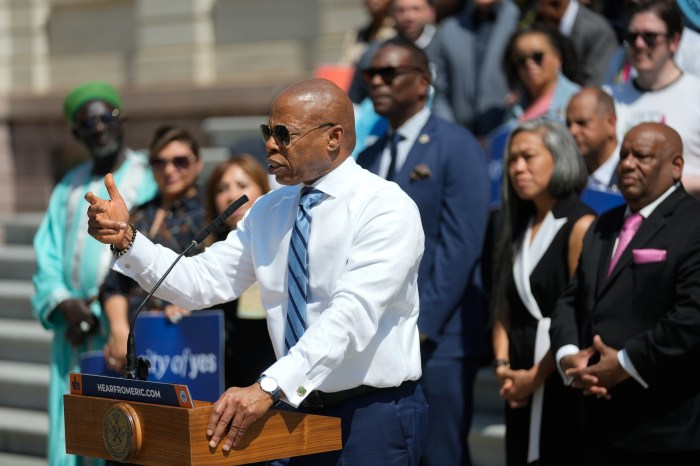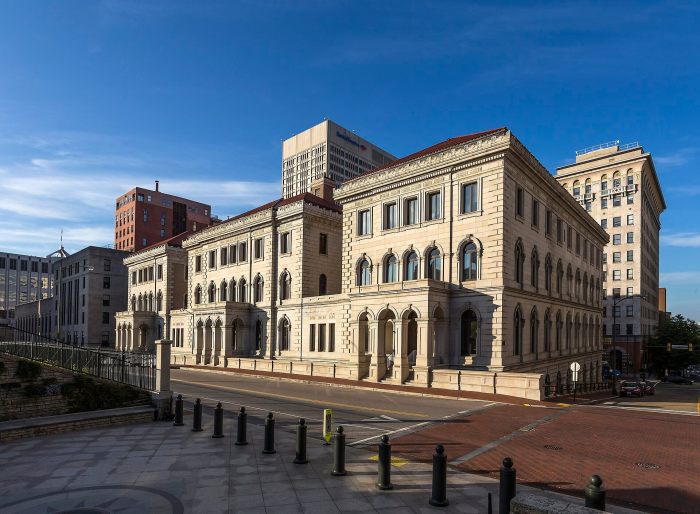When the U.S. Supreme Court struck down the use of affirmative action in college admissions last year, the debate over legacy admissions was reignited – and rightfully so. The discussion has pitted the views of those who support additional privilege for the privileged against the views of a growing majority who stand on the side of fairness in higher education.
I represent communities in Central and Eastern Brooklyn like Brownsville, Ocean Hill and parts of East Flatbush, Bedford-Stuyvesant, Crown Heights and East New York. These are communities in which most of the public-school students are Black or brown. These students deserve equal access to a college education. That is why I am the Assembly sponsor of the Fair College Admissions Act.
The bill seeks to level the playing field for low-income and working-class families who want to send their children to college in New York State. It seeks to ensure that the doors of opportunity swing open for people from historically marginalized communities, rather than closing shut due to structural barriers created by legacy admissions policies that tend to reward affluent white students and discriminate against students of color and first-generation scholars across New York State. Passing this bill, sponsored in the State Senate by Andrew Gounardes, is a critical step toward creating equity in higher education.
For three years, Senator Gounardes and I have partnered with the education advocacy organization Education Reform Now New York, trying to end legacy admissions. Created in the 1920s, legacy admissions were meant to serve as an exclusionary tactic by colleges and universities, to keep Jewish applicants out of Ivy League universities. Legacy admissions are vestiges of the past. They are inherently unfair and should be eliminated from our state.
Our legislation would end this racist policy that has greatly benefited the 1%. Education Reform Now found that having a legacy status is like adding an additional 160 points on the SAT. A 2007 study found that “legacy applicants were three times as likely to be admitted as equally qualified non-legacy applicants.
This not only puts first-generation students at a disadvantage, but it also undermines racial and economic diversity in admissions. This is not ok. Our children should not be penalized just because their parents or grandparents did not enroll at the university they aspire to attend. And yet, New York has the largest number of institutions in the country that consider legacy status in the admissions process. Forty-two percent of colleges and universities in New York still consider an applicant’s legacy, which is significantly higher than the 28% of schools across the country. That includes three SUNY schools, the same public universities which are supposed to help create pathways to careers with livable wages. These schools have gotten away with this terrible policy for far too long.
Last summer, the Supreme Court struck down affirmative action with respect to college admissions and that put a new spotlight on efforts across the country for fair admission standards. The New York Civil Liberties Union (NYCLU) joined our coalition of largely student and parent advocacy organizations saying, “the history of legacy preference is explicitly racist and antisemitic.” In March, the New York State Chapter of the NAACP also signed on and called for an end to this discriminatory practice, echoing the stance of the nationwide leadership of the NAACP.
Support for the Fair College Admissions Act has even expanded to former critics. For years, the Commission on Independent Colleges and Universities, or CICU, opposed ending legacy admissions, calling the practice an “important tool” for New York colleges and universities. But the CICU changed its tune after the Supreme Court’s decision.
The CICU wrote a scathing report about the impact the SCOTUS decision would have on enrollment and then issued a statement saying it recognized “the public’s perception that the practice also has the effect of expanding privilege instead of opportunity.” Let’s be clear: It’s not perception. Legacy admissions are discriminatory, and New York needs to make it easier for high school graduates from Brownsville to Buffalo to gain access to college. We cannot limit higher education to the families with the biggest bank accounts.
These structural barriers were wrong when they were created a century ago and this inherently discriminatory policy must be dismantled. While ending legacy may not guarantee completely fair and just admissions standards, it’s an important step. Working-class and immigrant families deserve the right to compete on their own merit for admission to institutions of higher learning in New York State.
Assemblymember Latrice Walker represents the 55th Assembly, which includes the Brooklyn neighborhoods of Ocean Hill and Brownsville.


















